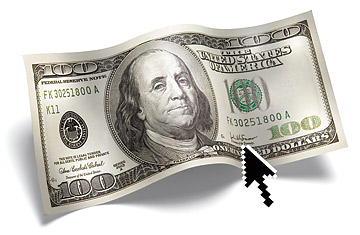
Barack Obama is the most prolific fund raiser in the history of American politics. He amassed much of his money the old-fashioned way, with affluent supporters writing him big checks and asking their wealthy friends to write more. But Obama's foremost advantages, and what allowed him to break all records, were Web savviness and volume: his campaign had a seemingly inexhaustible capacity to rake in small contributions over the Internet that, added together, became an intimidating mountain of cash. In September, when Obama collected a stunning $150 million in 30 days, almost 75% of the haul arrived via the Web. Noted a top Obama moneyman: "We've stopped even having fund raisers."
Obama didn't merely shatter all previous records. He made them irrelevant. In 2000, John McCain sent ripples through the political world by raising around $6 million on the Web. Four years later, Howard Dean was considered a high-tech revolutionary when he took in $27 million in e-bucks, while John Kerry raised an impressive $84 million. Remember, those figures are for entire election cycles; in one good month, Obama topped them all combined.
George W. Bush, once the best fund raiser in American politics, had only modest success with Internet contributions, collecting less than $18 million in both of his presidential campaigns combined, making him perhaps the last elected President to fill his campaign coffers with paper checks rather than pixels.
Future presidential candidates will probably try to duplicate Obama's success, collecting small sums in mass quantities and forgoing the spending limits that come with public campaign money. Whether less inspiring candidates can match his success is uncertain.